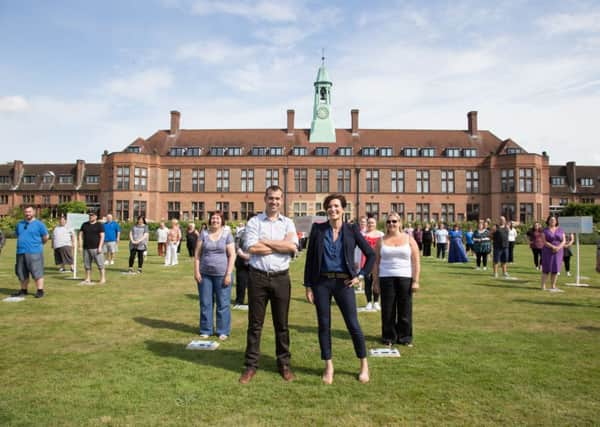TV preview: What’s the Right Diet for You?


Most diets are a one-size-fits-all approach. But each of us puts on weight for different reasons and scientists are investigating how differences in our biochemistry, psychology and our genes affect our weight.
In a ground-breaking national experiment – the first of its kind – Dr Chris van Tulleken and clinical psychologist Professor Tanya Byron, together with Britain’s foremost nutrition and weight loss scientists from Oxford and Cambridge universities, put the latest theory to the test. They have selected 75 overweight volunteers from across the UK who will be put on personalised diets to explore three particular causes of overeating: genes, gut hormones and emotion-related eating.
Can science succeed, where other diets have failed?
Advertisement
Hide AdAdvertisement
Hide AdIn the first episode, cameras follow the hopeful dieters as they go through an intensive five-day analysis at a residential diet lab at Liverpool Hope University. They undergo a series of experiments run by the obesity scientists to look at whether the volunteers’ eating behaviour matches biological and psychological test results. First up, the volunteers are secretly filmed at a non-stop sushi banquet. From a nerve centre, they’re closely observed by gut hormone specialist Professor Fiona Gribble. She wants to test the theory that people who produce less of a gut hormone that signals to the brain when we’re full will eat more at a meal times than other people.
Next, behavioural scientist Professor Paul Aveyard tests the power of emotional eating. He assesses how individuals in the Emotional Eaters group – those who turn to food when anxious, depressed or stressed – react to a stressful experience compared with those in a different group.
Finally, the third group – the Constant Cravers – are put to the test by geneticist Dr Giles Yeo. The latest genetic research into eating behaviour shows that within the human body, there are a number of key obesity genes, which – if you have them – can make you want to eat constantly.
After confirming that the three groups match the eating behaviour they anticipated, the scientists reveal which groups the volunteers are in and the personalised diets which will best address their overeating.
Viewers at home can also find out which diet might be right for them by trying the online diet test, available from January 12 at bbc.co.uk/rightdiet.
• BBC2, Monday, 9pm.